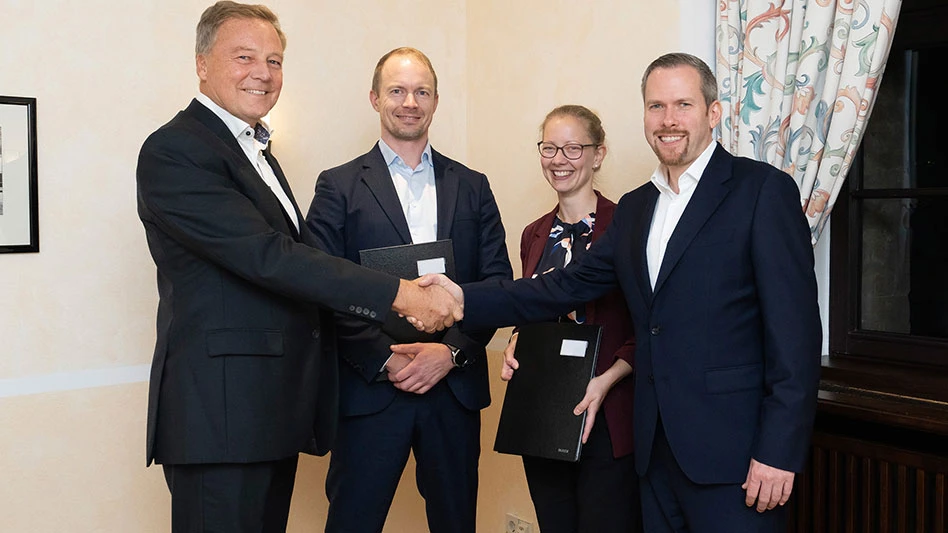
Photo courtesy of BASF SE
BASF and Stena Recycling have signed a black mass purchase agreement that is part of a broader collaboration between the two companies that seeks to establish a battery recycling value chain for the European electric vehicle (EV) battery market.
The companies say they will focus on developing improved black mass production processes to achieve high recovery rates for metals such as lithium, nickel and cobalt to support closed-loop solutions for the European EV battery market. Stena Recycling, which is headquartered in Gothenburg, Sweden, and also operates in Norway, Denmark, Finland, Germany, Poland, Italy and the U.S., will collect end-of-life lithium-ion batteries and battery production scrap and produce black mass at its Halmstad, Sweden location. BASF, headquartered in Ludwigshafen, Germany, will further process the black mass at its prototype metal refinery in Schwarzheide, Germany. The companies plan to transfer the model into BASF’s planned commercial-scale battery recycling metal refinery planned for Schwarzheide, which will have the ability to handle 15,000 tons of EV batteries and battery production scrap annually.
Marcus Martinsson, product area manager, batteries, at Stena Recycling Group, says, “The electrification of society has only just begun, and we want to boost a circular approach to battery production. Cooperation between industry actors will be essential for a successful green transition. With this agreement in place, Stena Recycling strengthens its position as one of the leading recycling partners in Europe to both battery manufacturers and the vehicle industry.”
Under this collaboration, Stena Recycling will be responsible for collecting end-of-life lithium-ion batteries and battery production scrap, dismantling and discharging the batteries and black mass production. BASF will recover valuable metals from black mass and produce new cathode active materials for new lithium-ion batteries.
“By entering into a cooperation with Stena Recycling, we are strengthening BASF’s ability to offer a broadened battery collection network with a strong partner in the Scandinavian countries so that we can expand our offer for individual and closed-loop solutions to battery producers and electric vehicle manufacturers in Europe,” Daniel Schönfelder, president of BASF’s Catalysts division, says. He also is responsible for the company’s battery materials and battery recycling business. “This is an important step towards a circular economy for the European electric vehicle battery market.”
Latest from Recycling Today
- BMW Group, Encory launch 'direct recycling’ of batteries
- Loom Carbon, RTI International partner to scale textile recycling technology
- Goodwill Industries of West Michigan, American Glass Mosaics partner to divert glass from landfill
- CARI forms federal advocacy partnership
- Monthly packaging papers shipments down in November
- STEEL Act aims to enhance trade enforcement to prevent dumping of steel in the US
- San Francisco schools introduce compostable lunch trays
- Aduro graduates from Shell GameChanger program





